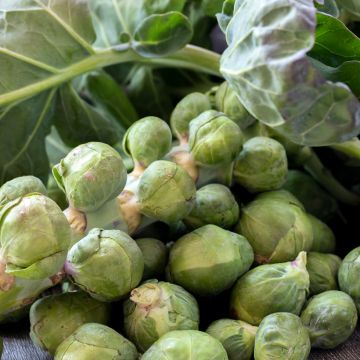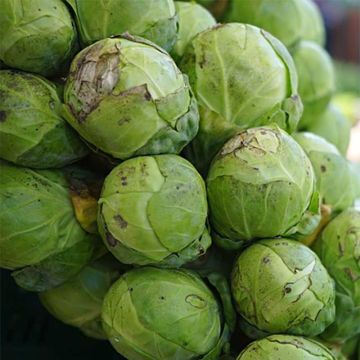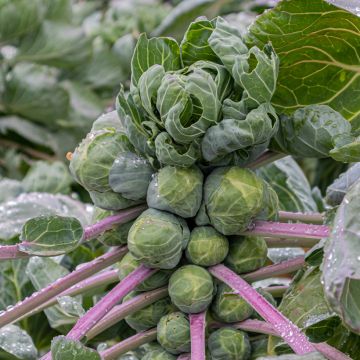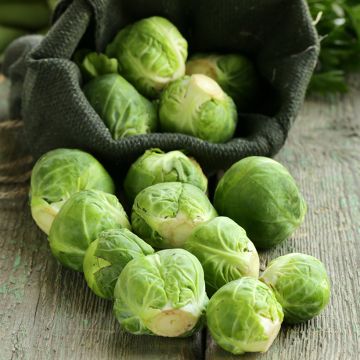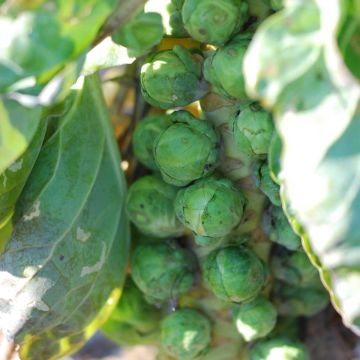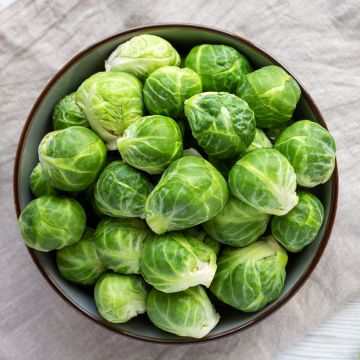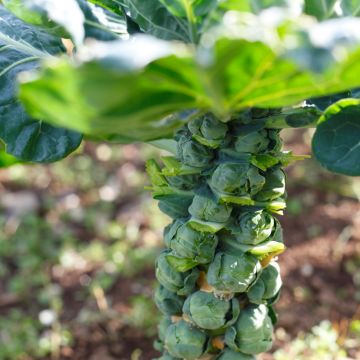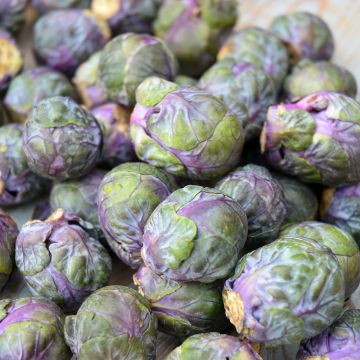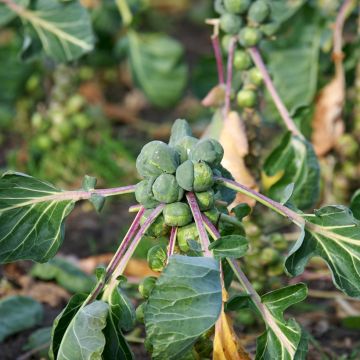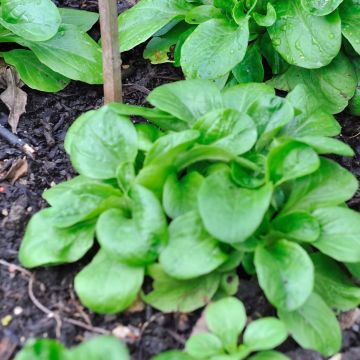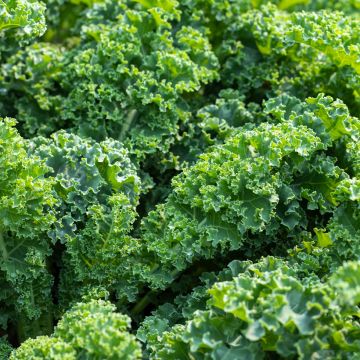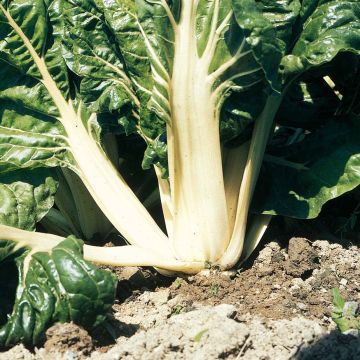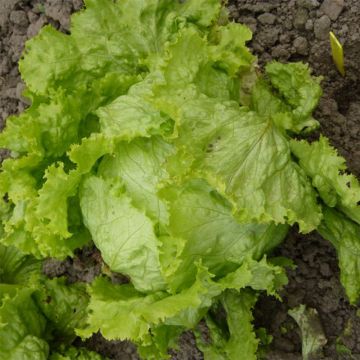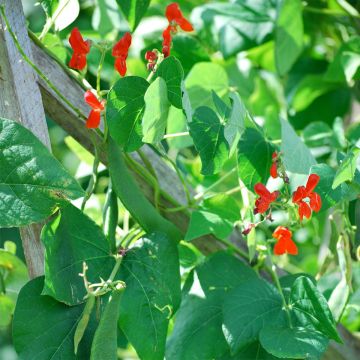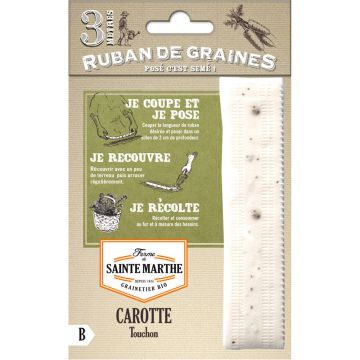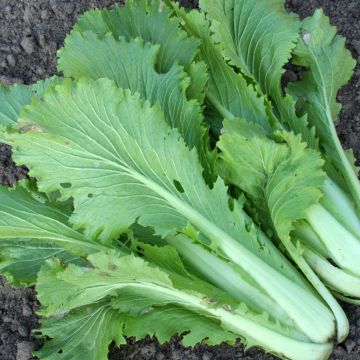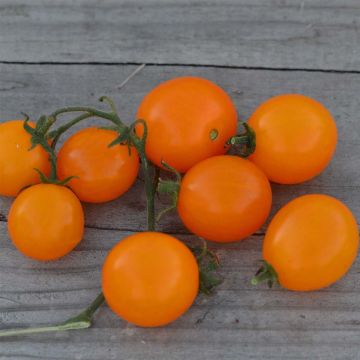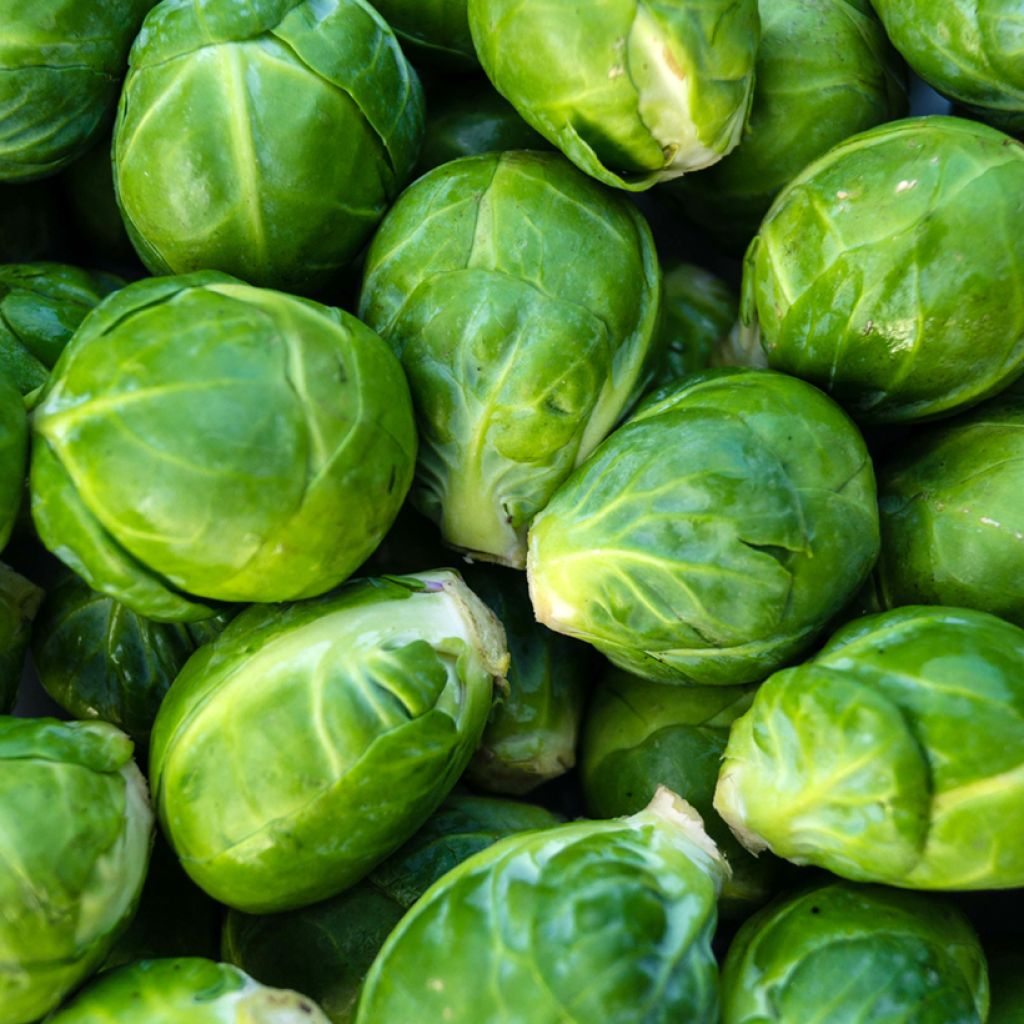

Brussels Sprout Amaroso F1 - Brassica oleracea gemmifera
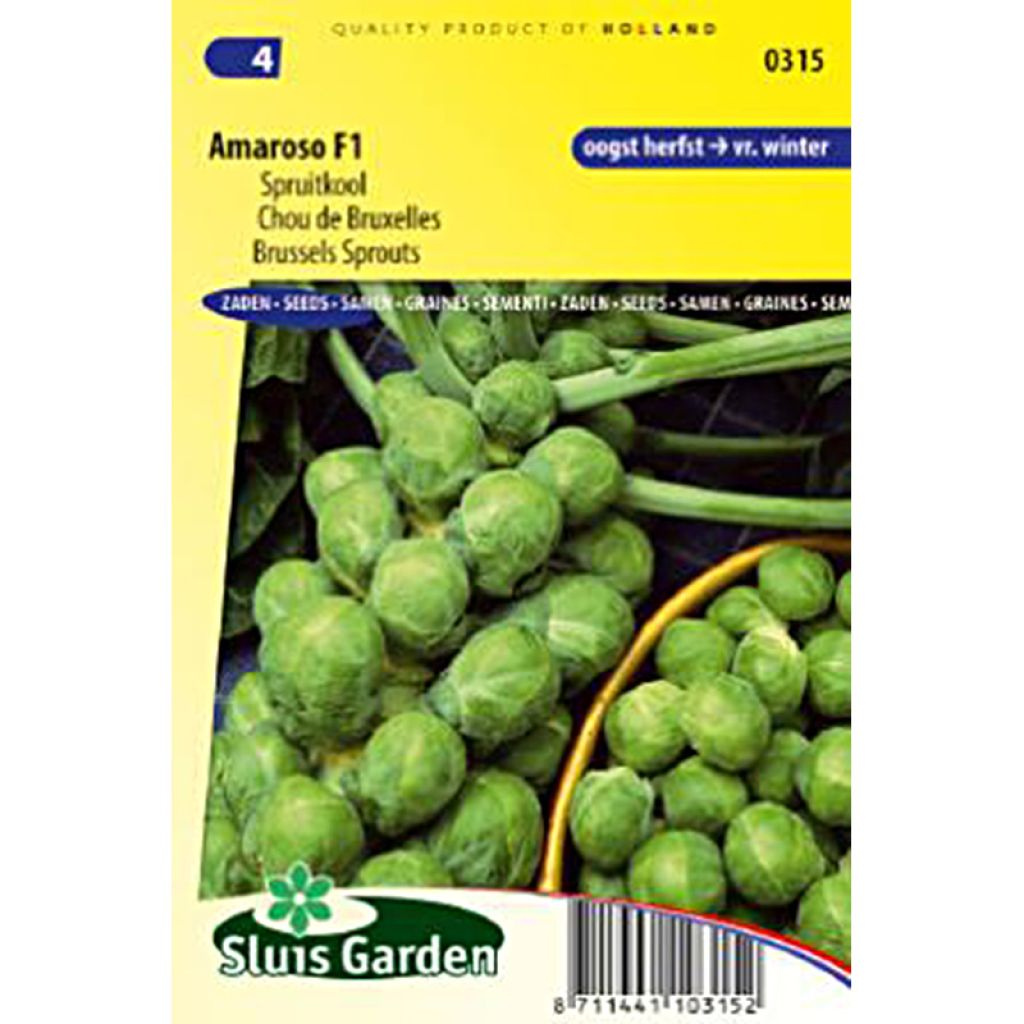

Brussels Sprout Amaroso F1 - Brassica oleracea gemmifera
Brussels Sprout Amaroso F1 - Brassica oleracea gemmifera
Brassica oleracea gemmifera Amaroso F1
Brussels Sprout
Special offer!
Receive a €20 voucher for any order over €90 (excluding delivery costs, credit notes, and plastic-free options)!
1- Add your favorite plants to your cart.
2- Once you have reached €90, confirm your order (you can even choose the delivery date!).
3- As soon as your order is shipped, you will receive an email containing your voucher code, valid for 3 months (90 days).
Your voucher is unique and can only be used once, for any order with a minimum value of €20, excluding delivery costs.
Can be combined with other current offers, non-divisible and non-refundable.
Why not try an alternative variety in stock?
View all →This plant carries a 6 months recovery warranty
More information
We guarantee the quality of our plants for a full growing cycle, and will replace at our expense any plant that fails to recover under normal climatic and planting conditions.
Description
The 'Amaroso F1' Brussels Sprout is a highly productive variety that produces medium-sized, smooth and firm sprouts on large stalks. Sow undercover from March to May and April to June in open ground for a harvest from September to December.
Brussels sprouts are a vegetable whose axillary buds, forming small heads called "buttons," are consumed. This biennial vegetable, cultivated as an annual, belongs to the large Brassicaceae family (formerly Cruciferae). It has the Latin name Brassica oleracea gemmifera. Latin enthusiasts will appreciate "Gemmifera," which refers to precious stones.
Originating from Belgium, this sprout is a hybrid developed in the 14th century by market gardeners from Saint-Gilles (a municipality in the Brussels periphery), who were keen to increase their productivity. Growing vertically, Brussels sprouts take up little space on the ground and allow for abundant harvests in a minimal amount of space.
The Brussels sprout is the epitome of an autumn and winter vegetable, with a sweet, slightly sugary and very comforting flavour. Carefully cooked, its delicate taste pairs well with bacon, chestnuts, and smoked pork. It can be consumed cooked, sautéed, braised, or even gratinéed... Quickly steamed, it is also excellent served cold in salads. It is a vegetable rich in fibre, antioxidants, and vitamins C and B.
Brussels sprouts are much less demanding than most cabbages. They thrive in moderate-rich soil, especially with a good nitrogen content. Overly rich soil would result in the production of undersized, open, or burst sprouts.
Note: This variety is labelled F1 for "F1 hybrid" because it results from the cross-breeding of carefully selected parents to combine their qualities. This results in a variety that can be flavourful and/or early while also resistant to certain diseases. Sometimes criticised or mistakenly associated with GMOs, F1 hybrid seeds are interesting for their uniformity and resistance, but, unfortunately, their qualities do not pass on to subsequent generations, so it will not be possible to save the seeds for later sowing.
Harvest: Brussels sprouts are harvested from the bottom of the stalk, cutting off the small heads with a knife.
Storage: Brussels sprouts can be stored for 3 to 4 days in the refrigerator's vegetable drawer. They can also be frozen well after being blanched in salted boiling water for 3 to 5 minutes.
The gardener's tip: The main enemy of Brussels sprouts is the cabbage white butterfly (Pieris brassicae), a pretty cream-white butterfly with small black spots that emerges in April-May and wreaks havoc throughout the summer by devouring its leaves. Don't be caught off guard and opt for prevention by installing an insect-proof net tightly over market garden hoops. These nets are easy to set up and reusable to protect, for example, your carrot and leek crops.
Report an error about the product description
Harvest
Plant habit
Foliage
Botanical data
Brassica
oleracea
gemmifera Amaroso F1
Brassicaceae
Brussels Sprout
Cultivar or hybrid
Annual
Other Brussels sprout seeds
View all →Planting and care
Sowing
The germination temperature of Amaroso F1 Brussels Sprouts ranges from 7 to 20° and takes an average of 10 days.
It is sown from March to May under cover and from April to June in open ground for a harvest from September to December.
Preparing seedlings: Under heated shelter at the end of winter, under a cold greenhouse or in a nursery in the garden for the rest of the year, sow the seeds at a depth of 1 cm (0in) in good seed compost. Lightly cover with compost or vermiculite. Don't forget to keep the substrate moist but not waterlogged!
When the young plants appear strong enough to be handled, transplant them into pots if necessary and, for seeds sown under heated shelter, gradually acclimatise them to cooler temperatures before transplanting them into the garden when there is no longer any risk of frost.
Direct sowing: In properly amended and finely worked soil, make furrows 1 cm (0in) deep, spaced 65 cm (26in) apart. Sow the seeds and cover them with a thin layer of fine soil. When the seedlings are well developed, thin them out, leaving only one plant every 65 cm (26in).
Cultivation:
Brussels Sprouts are less demanding than most cabbage varieties, they thrive in moderately rich soil, especially in nitrogen. Too heavily fertilised soil would produce small, open, or burst sprouts.
They are not very tolerant of soil pH, which should be between 5.6 and 6.5. In acidic soil, it will be necessary to gradually raise the pH by adding calcium in the form of Dolomite or Lime.
Brussels Sprouts, like all cabbage varieties, are quite susceptible to diseases such as Clubroot and pests (Cabbage White Butterfly, Cabbage Root Fly, Flea Beetle, Gall Midge...); it is very important for this crop to pay attention to crop rotation.
Seedlings
Care
Intended location
This item has not been reviewed yet - be the first to leave a review about it.
Similar products
Haven't found what you were looking for?
Hardiness is the lowest winter temperature a plant can endure without suffering serious damage or even dying. However, hardiness is affected by location (a sheltered area, such as a patio), protection (winter cover) and soil type (hardiness is improved by well-drained soil).

Photo Sharing Terms & Conditions
In order to encourage gardeners to interact and share their experiences, Promesse de fleurs offers various media enabling content to be uploaded onto its Site - in particular via the ‘Photo sharing’ module.
The User agrees to refrain from:
- Posting any content that is illegal, prejudicial, insulting, racist, inciteful to hatred, revisionist, contrary to public decency, that infringes on privacy or on the privacy rights of third parties, in particular the publicity rights of persons and goods, intellectual property rights, or the right to privacy.
- Submitting content on behalf of a third party;
- Impersonate the identity of a third party and/or publish any personal information about a third party;
In general, the User undertakes to refrain from any unethical behaviour.
All Content (in particular text, comments, files, images, photos, videos, creative works, etc.), which may be subject to property or intellectual property rights, image or other private rights, shall remain the property of the User, subject to the limited rights granted by the terms of the licence granted by Promesse de fleurs as stated below. Users are at liberty to publish or not to publish such Content on the Site, notably via the ‘Photo Sharing’ facility, and accept that this Content shall be made public and freely accessible, notably on the Internet.
Users further acknowledge, undertake to have ,and guarantee that they hold all necessary rights and permissions to publish such material on the Site, in particular with regard to the legislation in force pertaining to any privacy, property, intellectual property, image, or contractual rights, or rights of any other nature. By publishing such Content on the Site, Users acknowledge accepting full liability as publishers of the Content within the meaning of the law, and grant Promesse de fleurs, free of charge, an inclusive, worldwide licence for the said Content for the entire duration of its publication, including all reproduction, representation, up/downloading, displaying, performing, transmission, and storage rights.
Users also grant permission for their name to be linked to the Content and accept that this link may not always be made available.
By engaging in posting material, Users consent to their Content becoming automatically accessible on the Internet, in particular on other sites and/or blogs and/or web pages of the Promesse de fleurs site, including in particular social pages and the Promesse de fleurs catalogue.
Users may secure the removal of entrusted content free of charge by issuing a simple request via our contact form.
The flowering period indicated on our website applies to countries and regions located in USDA zone 8 (France, the United Kingdom, Ireland, the Netherlands, etc.)
It will vary according to where you live:
- In zones 9 to 10 (Italy, Spain, Greece, etc.), flowering will occur about 2 to 4 weeks earlier.
- In zones 6 to 7 (Germany, Poland, Slovenia, and lower mountainous regions), flowering will be delayed by 2 to 3 weeks.
- In zone 5 (Central Europe, Scandinavia), blooming will be delayed by 3 to 5 weeks.
In temperate climates, pruning of spring-flowering shrubs (forsythia, spireas, etc.) should be done just after flowering.
Pruning of summer-flowering shrubs (Indian Lilac, Perovskia, etc.) can be done in winter or spring.
In cold regions as well as with frost-sensitive plants, avoid pruning too early when severe frosts may still occur.
The planting period indicated on our website applies to countries and regions located in USDA zone 8 (France, United Kingdom, Ireland, Netherlands).
It will vary according to where you live:
- In Mediterranean zones (Marseille, Madrid, Milan, etc.), autumn and winter are the best planting periods.
- In continental zones (Strasbourg, Munich, Vienna, etc.), delay planting by 2 to 3 weeks in spring and bring it forward by 2 to 4 weeks in autumn.
- In mountainous regions (the Alps, Pyrenees, Carpathians, etc.), it is best to plant in late spring (May-June) or late summer (August-September).
The harvesting period indicated on our website applies to countries and regions in USDA zone 8 (France, England, Ireland, the Netherlands).
In colder areas (Scandinavia, Poland, Austria...) fruit and vegetable harvests are likely to be delayed by 3-4 weeks.
In warmer areas (Italy, Spain, Greece, etc.), harvesting will probably take place earlier, depending on weather conditions.
The sowing periods indicated on our website apply to countries and regions within USDA Zone 8 (France, UK, Ireland, Netherlands).
In colder areas (Scandinavia, Poland, Austria...), delay any outdoor sowing by 3-4 weeks, or sow under glass.
In warmer climes (Italy, Spain, Greece, etc.), bring outdoor sowing forward by a few weeks.






























